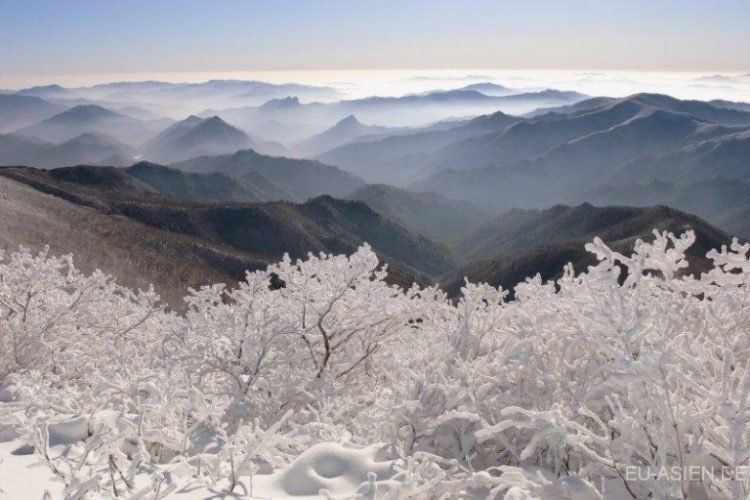How well do you know Korea’s lunar calendar, and its 24 ‘Jeolgi’ seasons in Korea?
Like many other East Asian countries, Korea traditionally followed a lunar calendar, as opposed to the solar calendar followed by the West. Unlike the solar calendar, which is based on the earth’s rotation around the sun, the lunar calendar uses the phases of the moon to calculate months and dates.

The lunar calendar is used for the observation of many Korean festivals, including Seolnal (lunar new year), Jaewol Daeboreum (first full moon), Chuseok, and Buddah’s Birthday.
The Lunar Calendar also includes twenty-four solar terms called ‘Jeolgi’. These ‘Jeolgi’ split the year into different seasons according to weather and climate, with each spaced approximately 15 days apart. The observance of these Jeolgi were highly important in Korea in predicting agricultural cycles and observing other seasonal rituals.
Read about some of Korea’s ‘Jeolgi’ seasons below! All dates are according to the lunar calendar.
24 Seasons in Korea
Sohan – January 6th – Small Cold
Literally meaning ‘small cold’, Sohan was thought to be the coldest day of the year in Korea. After Sohan, the weather gets progressively colder, before snapping and beginning to ease over the following Jeolgi, Daehan.
Daehan – January 21st – Great Cold
Ipchun – February 4th – Start of Spring
Ipchun was a very important day in the lunar calendar, with many rituals held on this day to help ensure successful farming that year. The Chinese characters for the word ‘Ipchun’, meaning ‘start of spring’ were traditionally written on rectangular signs and hung above household doorways to bring good luck.
Woosoo – February 19th – Start of the Spring Rain
Gyungchip – March 5th – Insects and Creatures Awake from Hibernation
Chunboon – March 20 – Days Begin to get Longer
Chungmyung – April 4th – Weather begins to Brighten
Gokwoo – April 20 – Spring Rain Falls on the Grain
Ip-ha – May 5 – Start of Summer
Falling during the fourth lunar month, Ip-ha represents the beginning of summer according to the lunar calendar. Farmers at this time are busy weeding and tending to their crops, while the women traditionally fed and saw to the silkworms.
Soman – May 21 – Grain Growth
Mangjong – June 5th – Grain in Ear, or Bearded Grain
Haji – June 21st – Summer Solstice
Haji, or ‘summer solstice’, marks the longest day of the year according to the lunar calendar, when the sun is at its northernmost point in the sky. It is one of the most important days during the summer season. Barley and wheat were harvested in the days leading up to Haji.
Soseo – July 7th – Weather Begins to get Hotter
Daeseo – July 22nd – Full Summer Weather Begins
Ipchoo – August 7th – Start of Fall
Usually in the lunar calendar’s seventh month, Ipchu marks the official beginning of autumn in Korea, and is the thirteenth of the twenty four Jeolgi. The weather on Ipchu would be used to predict the weather over the coming autumn months, which was important in helping ensure a successful harvest.
Cheoseo – August 23rd – Summer Heat Begins to Lessen
Baekro – September 7th – White Dew Period
Baekro – or ‘white dew’ period – is so called because during this season, alternating hot and cooler weather causes little crops of white, dew-like Acacia flowers on the ground in the mornings.
Chooboon – September 22nd – Fall Equinox (night and day equal in length)
Hanro – October 8th – Cold Dew Period
Sanggang – October 23rd – Arrival of the Frost
Ipdong – November 7th – Start of Winter
Ipdong literally means ‘onset of Winter’, and represents the beginning of the coldest and harshest period of the year. At this time, families start to prepare for Kimjang – the making of kimchi to see them through the winter months. Kimjang traditionally took place within the five days before or after the beginning of Ipdong, as this was thought to be the time when it would become most delicious.
Soseol – November 22nd – Little Snow
Daesol – December 21st – Major Snow
Dongji – December 29 – Winter Solstice
Read more about Dongji on our blog.
Although no longer celebrated as widely and commonly as during Korea’s agricultural era, the Jeolgi are still a fantastic insight into the customs and beliefs of a country which traditionally relied heavily on the weather and the seasons to survive.
Tailored Gastro Tour Seoul tours are available on or around lunar holidays, to explore customs and cuisine associated with Korea’s traditional holidays. For more information, email info@gastrotourseoul.com.
